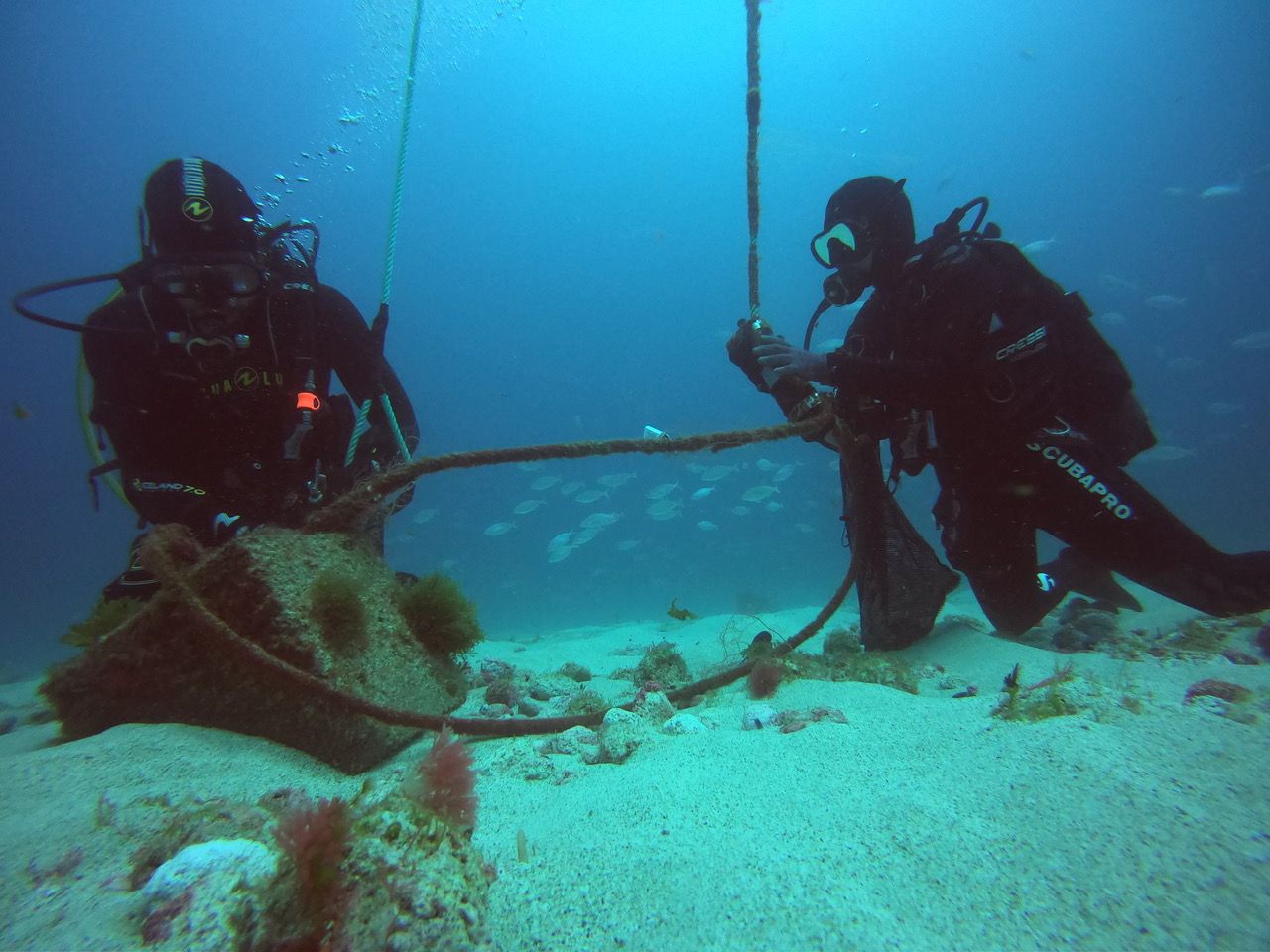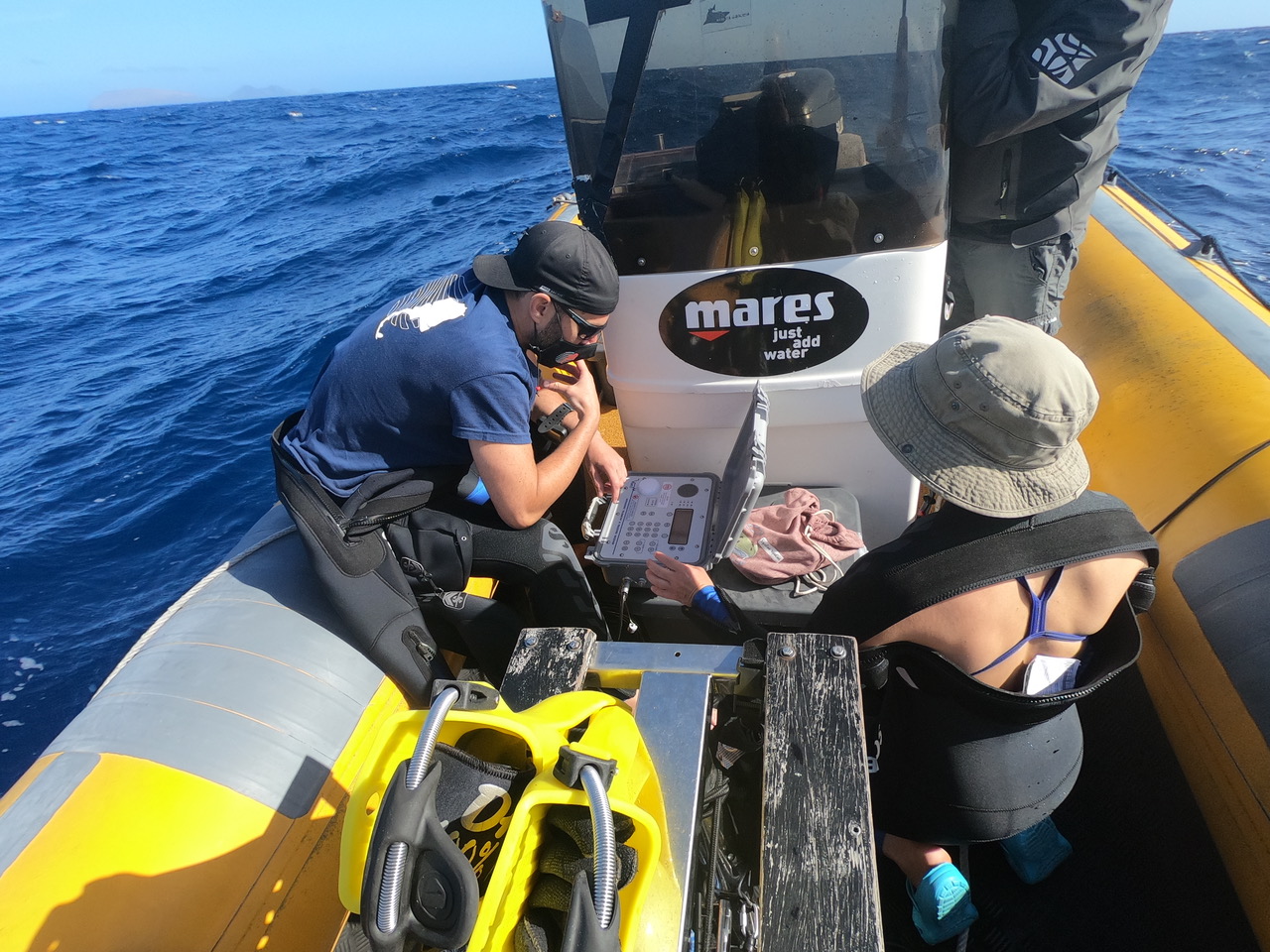After four years of scientific activities, the CanBio project, led by the Institute for Research in Sustainable Aquaculture and Marine Ecosystems (ECOAQUA) of the University of Las Palmas de Gran Canaria (ULPGC), has become a reference in the evaluation of climate change in the Macaronesian region, as well as a model for the protection of marine species throughout the region in the context of the imminent global change we are facing.
After evaluating the acidification process, the marine noise and the biology of different critically endangered species in the Canary waters, the project has obtained funding to extend its research lines for at least one more year. In this new stage, the University Institue ECOAQUA researchers will focus on the evaluation and bioecological studies of spiny butterfly rays and angel sharks in the Canary Archipelago, two marine species listed as critically endangered worldwide. In addition, this new edition will incorporate the evaluation of dogfish, also emblematic species of our islands, which are studied for the first time with the new technologies implemented by the university institute in the Canary Islands.
The project, which will begin to be called CanBio+ in 2023, is formed by 8 subprojects. The researchers José Juan Castro and David Jiménez Alvarado, from the Biodiversity and Conservation group (BIOCON) of University Institute ECOAQUA, lead three of these subprojects, in particular Biomar (in charge of the study of the elasmobranchs) and Bioacu (which is fed by Biomar, since its mission is to create autonomous vehicles and support material to collect data from the previously tagged species).
CanBio is a public-private collaboration between Loro Parque Fundación and the Government of the Canary Islands, a enterprise that has contributed to obtain the necessary funding to develop the different lines of research.

Picture 1. Researchers carrying out maintenance work on the network of detectors located in the Marine Reserve of La Graciosa. Picture 2 .Researchers carrying out the recovery of deep receivers in La Graciosa Marine Reserve. Author: Alexander Lehnen
The university center ECOAQUA was selected to lead these projects because of its previous experience and results in two related projects: Angel Shark Project and Rays of Paradise; which already have an extensive development in the Archipelago and are co-led by BIOCON researcher, David Jimenez. In the case of angel sharks, the Angel Shark Project, initiated in 2014 as a collaboration between 3 international institutions such as the University of Las Palmas de Gran Canaria, the Alexander Koenig Zoological Research Museum in Germany and the Zoological Society of London, has been decisive. On the other hand, the Rays of Paradise project, which dates from 2017, focused on the study of spiny butterfly rays, has led to the know-how of this species for the CanBio project.
During this process, more than 100 specimens of each of the species have been evaluated, obtaining vital data to carry out effective legislation and conservation of the same and achieving the objectives initially set at the beginning. All this thanks to the implementation of different acoustic tagging methodologies, pioneers in both species, the creation of an acoustic telemetry network for the first time in the archipelago, the collection of tissue or blood samples to carry out genetic, isotopic or bioaccumulation studies.
The results obtained in these two projects, in CanBio and CanBio+ now, contribute to improve our knowledge of the marine fauna of the Canary Islands and allow, among other implications, to make more accurate evaluations of the marine fauna, especially sharks, for the new report of the Shark Specialist Group of the International Union for Conservation of Nature (IUCN).
This is a worldwide evaluation of the status of the different chondrichthyan populations. In this case, the researcher of the ECOAQUA University Institute, David Jiménez, has been explicitly asked to carry out a report for the Canary Islands within the Spanish demarcation, generating the necessary information for the future implications of this report, which will influence the legislation of the coming years and on the possible impacts on harmful activities that these species face in our waters.
For more information, please contact: Beatriz Díaz – beatriz@mandarinacomunicacion.es - 620410871


